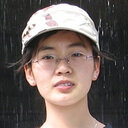Characterization and bioactivity of polysaccharides obtained from pine cones of Pinus koraiensis by graded ethanol precipitation.
Palavras-chave
Resumo
Pinus koraiensis polysaccharides (PKP) were extracted by hot water from P. koraiensis pine cones. Five polysaccharide fractions named PKP-A, PKP-B, PKP-C, PKP-D and PKP-E were successfully separated at final ethanol concentrations of 30%, 50%, 60%, 70% and 80%, respectively. HPLC, FT-IR, GC-MS and automatic amino-acid analysis were applied to investigate their chemical characteristics. Monosaccharide component analysis indicated that the five fractions were all composed of D-ribose, L-rhamnose, L-arabinose, D-xylose, D-mannose, D-glucose and D-galactose, but their molar ratios were quite different. HPLC results revealed that the polysaccharides precipitated by higher concentrations of ethanol solution had lower molecular masses. Moreover, the antioxidant activities of the five fractions were studied on the basis of hydroxyl radical and ABTS radical scavenging tests. The five graded polysaccharide fractions exhibited good inhibitory power, and MTT tests in vitro showed the IC50 of PKP-A and PKP-E were 1,072.5 and 2,070.0 μg · mL-1, respectively. These results demonstrated that the PKP could be a potential source of natural antioxidants or dietary supplements.



